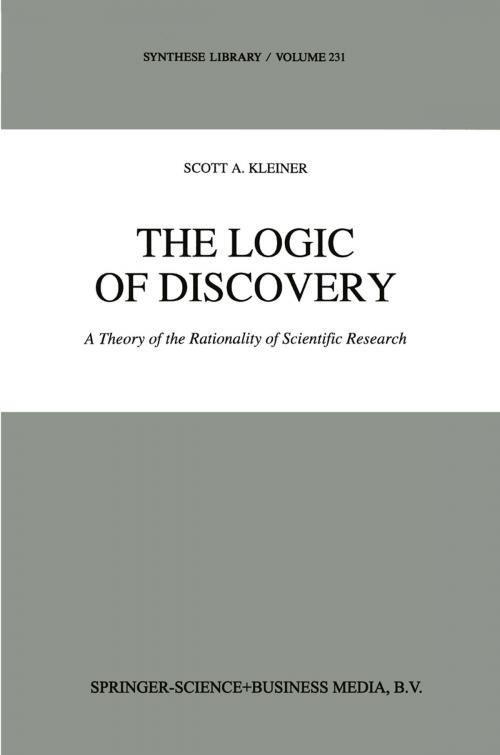The Logic of Discovery
A Theory of the Rationality of Scientific Research
Nonfiction, Science & Nature, Science, Other Sciences, Philosophy & Social Aspects, History| Author: | S. Kleiner | ISBN: | 9789401582162 |
| Publisher: | Springer Netherlands | Publication: | March 9, 2013 |
| Imprint: | Springer | Language: | English |
| Author: | S. Kleiner |
| ISBN: | 9789401582162 |
| Publisher: | Springer Netherlands |
| Publication: | March 9, 2013 |
| Imprint: | Springer |
| Language: | English |
Scientific research is viewed as a deliberate activity and the logic of discovery consists of strategies and arguments whereby the best objectives (questions) and optimal means for achieving these objectives (heuristics) are chosen. This book includes a discussion and some proposals regarding the way the logic of questions can be applied to understanding scientific research and draws upon work in artificial intelligence in a discussion of heuristics and methods for appraising heuristics (metaheuristics). It also includes a discussion of a third source for scientific objectives and heuristics; episodes and examplars from the history of science and the history of philosophy.
This book is written to be accessible to advanced students in philosophy and to the scientific community. It is of interest to philosophers of science, philosophers of biology, historians of physics, and historians of biology.
Scientific research is viewed as a deliberate activity and the logic of discovery consists of strategies and arguments whereby the best objectives (questions) and optimal means for achieving these objectives (heuristics) are chosen. This book includes a discussion and some proposals regarding the way the logic of questions can be applied to understanding scientific research and draws upon work in artificial intelligence in a discussion of heuristics and methods for appraising heuristics (metaheuristics). It also includes a discussion of a third source for scientific objectives and heuristics; episodes and examplars from the history of science and the history of philosophy.
This book is written to be accessible to advanced students in philosophy and to the scientific community. It is of interest to philosophers of science, philosophers of biology, historians of physics, and historians of biology.















